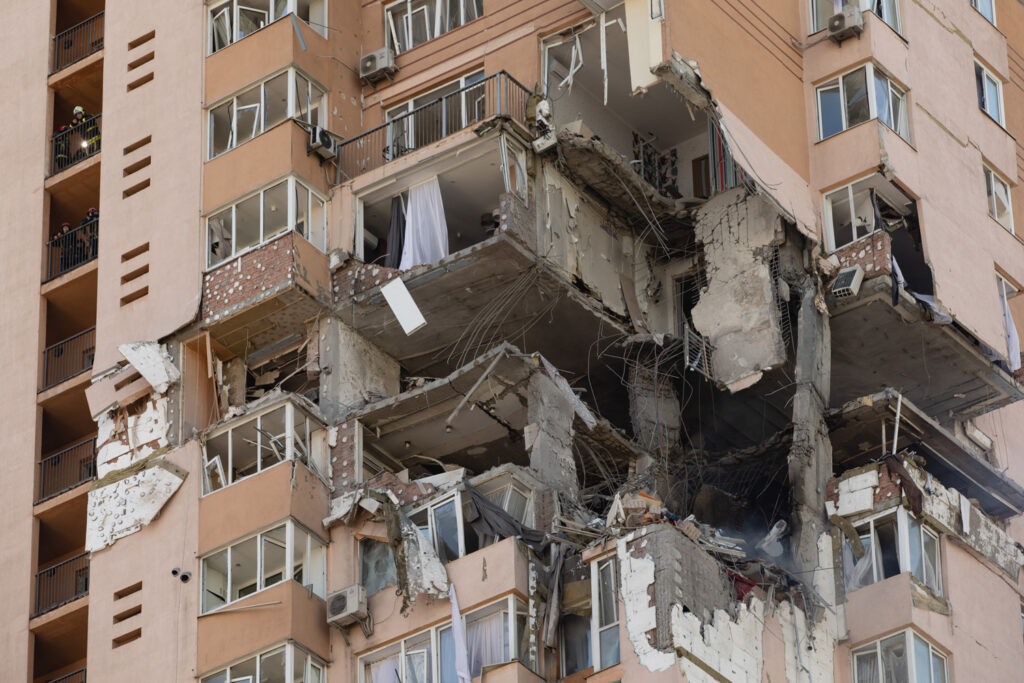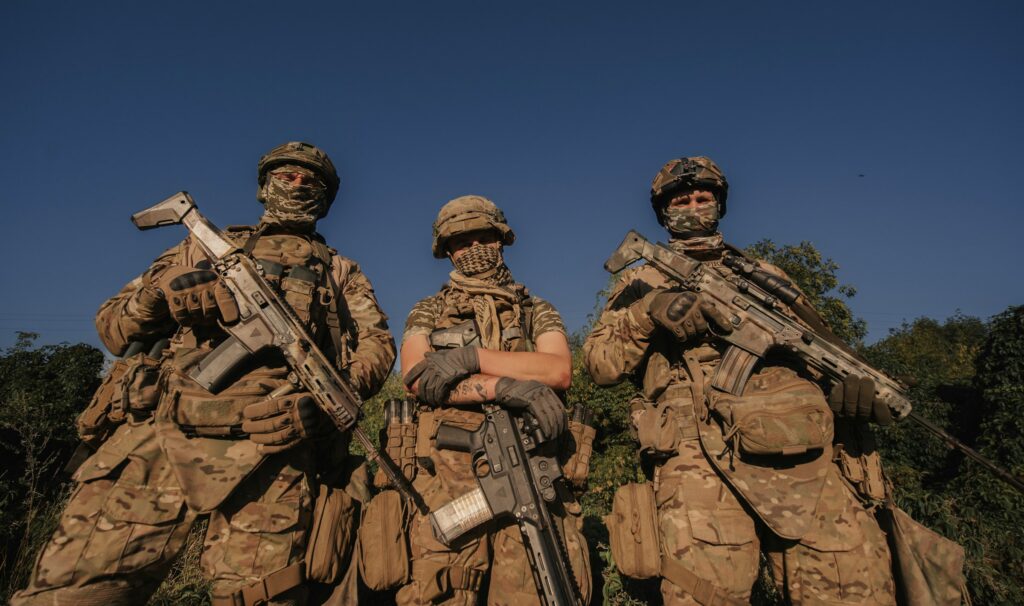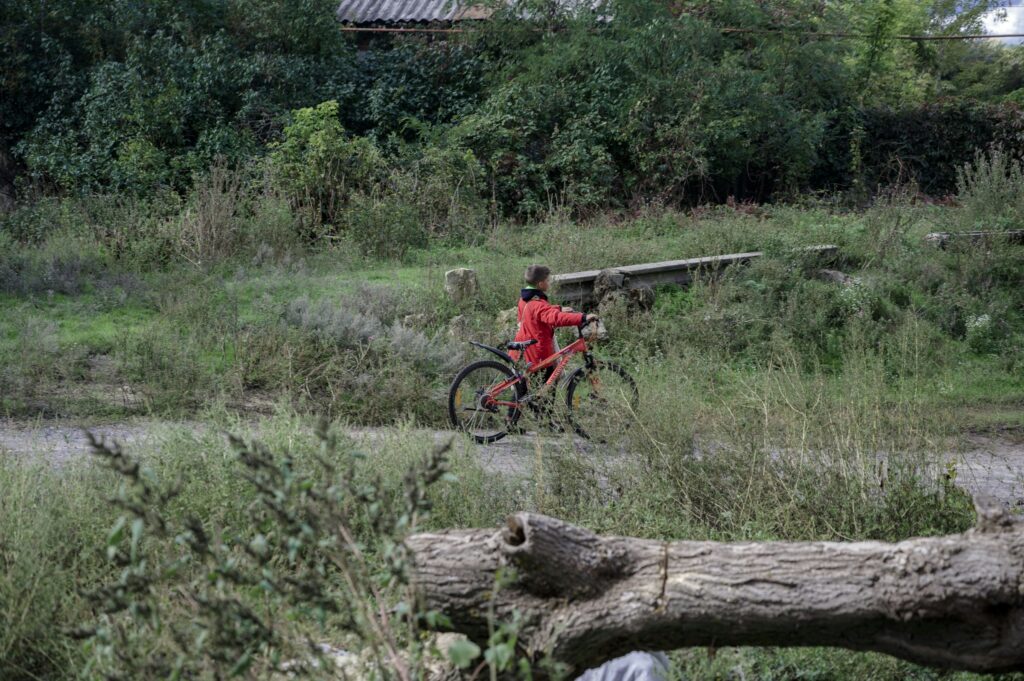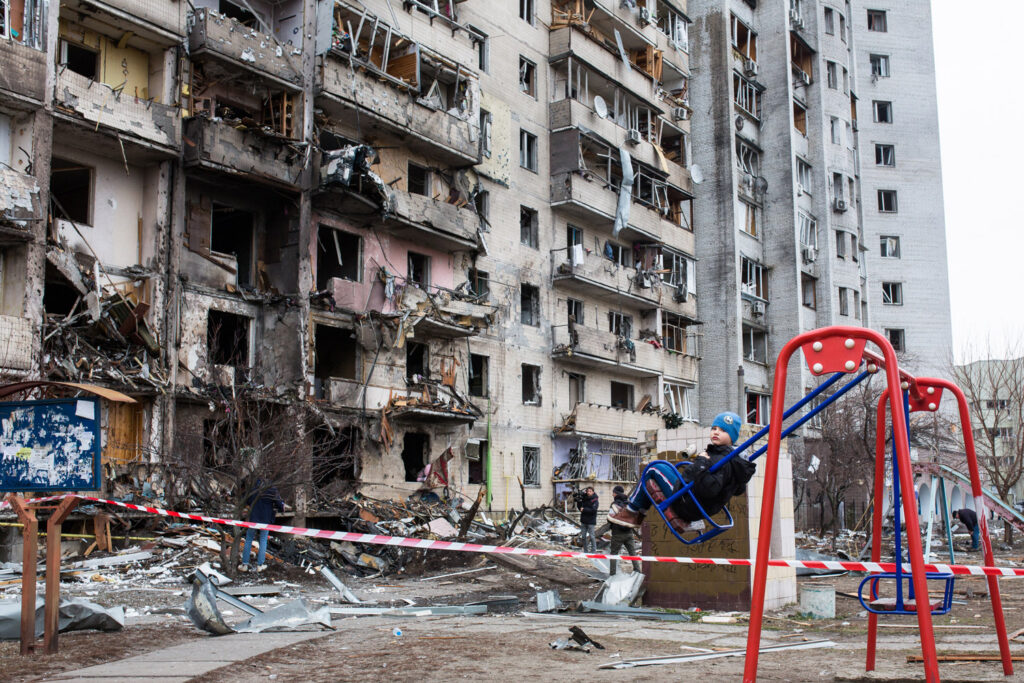While children play in Kyiv’s parks, the war casts long shadows – on the mothers who wait, the fathers who vanish, and a future no one can quite name.
On a playground in Kyiv, children laugh and run, oblivious to the war raging only 200 miles away from the city.
I am usually the only man there. The fathers are either working, serving at the front, or staying off the streets to avoid being stopped and handed mobilisation papers. The mothers watch the children and speak quietly about everyday things – household chores, schools, food prices.
Almost all of them speak Ukrainian, and so do their little ones. But the older children who drift onto the playground call out to each other in Russian. It’s their way of rebelling. Teenagers always need to be different from adults. They study Ukrainian in school, but by rejecting it on the playground, they feel like dissidents. I wonder what language they’ll speak when they grow up.
My wife isn’t too keen on me sitting there with all the other women, but she has to accept it – it’s my job to take our six-year-old granddaughter out for the day.
It’s not that we adults talk much on the playground. We’re too busy keeping an eye on the children, protecting them from swings, slides, and other mundane dangers. Yet the greatest danger can fall from the sky like a bolt of lightning – quite literally – so we often glance up or check the air raid apps on our phones.
These days, Russian attacks mostly happen at night, so daylight brings a certain calm. But as you sit on a bench, listening to the carousel creak and the children shriek with laughter, you find yourself wondering: is there really a war going on? The answer, of course, is yes. And so the relaxation is never complete.

Among the mothers I see most often, two stand out: Olga and Elena. Both have sons about three years old. Until recently, their husbands would sometimes appear at the playground for a few minutes. But for more than a month now, Olga and Elena have come there alone.
Olga’s husband went to Spain on a special ten-day permit and never returned. He stayed there to work and, as far as I understand, has no intention of coming back to Ukraine, where he could be drafted and sent to war. In this way, he’s one of hundreds of thousands of Ukrainian men who have left the country during the war, often more illegally than legally.
Olga calls it a long business trip. She stays in Kyiv to care for her disabled mother. She is married, but she has the look of a lonely woman – lost and determined at the same time.
Elena’s husband had remained in Kyiv for a long time, not fighting. But a few days ago, he was drafted and sent straight to the front. Someone has to be there. Some 800,000 men are fighting and dying for Ukraine, while several million more of conscription age wait for their turn – or try to avoid it.
Elena’s little boy knows nothing about this. He misses his father and refuses to sleep without his bedtime stories.

Elena told me that ever since her husband left, the boy demands she carry him in her arms, though she has a bad back. One afternoon, I offered to give him a ride on my shoulders, but he buried his face in his mother’s chest and refused.
“He’s stopped talking to any men,” Elena told me quietly. “He only wants his dad. No one else.”
I remember his father: a man a head taller than me, broad-shouldered and strong. Sometimes I wonder if he’s an easy target at the front – but I don’t say so. I wouldn’t know. I’ve never been there and never will be. My age protects me from martial law.
Still, I often ask myself: would I go to war if I were younger? I don’t know the answer.
In 2023, a survey in Britain and Poland asked men whether they would fight to defend their countries. About half said no. I remember how outraged many Ukrainians were at the time.
A year later, according to Gallup, 38% of Ukrainians said the country should continue fighting until complete victory, while 52% favoured rapid negotiations to end the war. Such surveys are no longer conducted. There’s no need. It’s enough to look at stalled mobilisation to understand the true state of affairs.
Instead of searching for statistics, I wonder how Olga and Elena will cope if one husband builds a new life in Spain and the other, God forbid, doesn’t come back. They’re close friends now. Will that friendship survive if their husbands return – or don’t? One day, when the war is finally over, how will the men who held weapons and those who hid in shelters look each other in the eye? What awaits their sons?
What awaits all of us – and Ukraine?

As I sit on the playground, surrounded by the echoes of children’s voices and the soft creak of the carousel, I try to believe in a happy ending. But is that possible after so many years of war? After hundreds of thousands of veterans return, wounded in body and spirit? After a crippled economy and a battered infrastructure? With millions of refugees who may never come home?
Before the war, there were far more children on Kyiv’s playgrounds. Pregnant women have become rare sights on the streets. And yet they exist – so someone still believes in a future. Children still play – anything but war.
So what will become of Ukraine?
The truth, I believe, is always singular. We all know it instinctively, adults and children alike. Dualism is a fine thing, wise and philosophical, but black is black, white is white, and grey is merely another colour, however many shades it may contain.
When the West urges Ukraine to keep fighting, thinking first of its own interests, is that betrayal or pragmatism? When Ukraine condemns the West for trading with Russia, while itself buying Russian gas routed through Europe, is that survival – or hypocrisy?
A children’s playground doesn’t relieve adults of hard questions. Distance from war doesn’t make it any less cruel or bloody. It’s time for the world to ask itself one urgent question: can this continue – and for how long? And to answer.
Otherwise, words like air raid, mobilisation, and front line may become part of everyday life in places that can’t even imagine them today.
The opinions in this article are those of the author.

